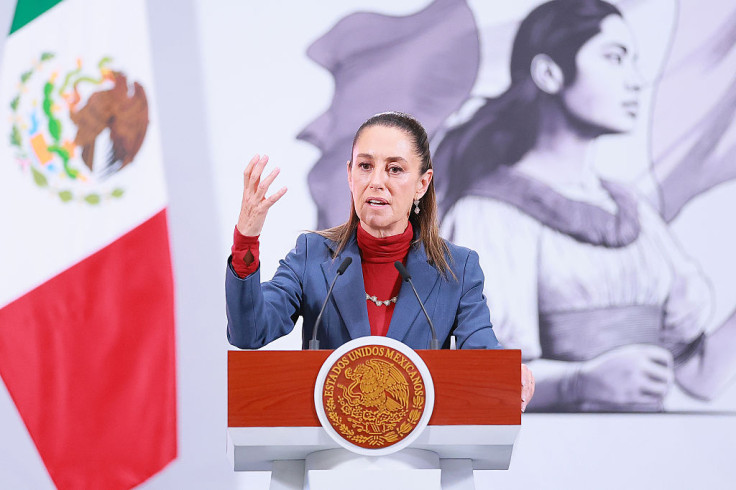
Sinaloa Cartel co-founder Ismael "El Mayo" Zambada admitted in a U.S. courtroom Monday to leading one of Mexico's most powerful criminal empires for decades.
Zambada, a longtime associate of Joaquín "El Chapo" Guzmán, pleaded guilty to two federal charges before a judge in Brooklyn, New York. He revealed, among other details, that for years he had bribed politicians, police officers and members of the military in Mexico to protect his cartel's operations.
Zambada's statements were not well received in Mexico's political circles. On Tuesday, President Claudia Sheinbaum and other high-ranking officials pushed back on his claims, noting that there are currently no formal complaints related to the allegations and that, if his statements are to be taken seriously, they should lead to the filing of an official complaint.
"Who exactly was he giving money to, according to what he said?" Sheinbaum asked during her Aug. 26 press conference. "There would need to be a specific complaint."
Sheinbaum was also asked whether her administration was concerned about what Zambada might disclose to U.S. prosecutors as part of his plea deal. She answered bluntly: "No. We are not worried. Whatever he might say, if it concerns Mexico, it must be supported by evidence and approved by the Attorney General's Office. There is a procedure."
#EnLaMañanera | 📢 Sheinbaum niega que haya "inquietud" en su gobierno por las "amenazas" de 'El Mayo', quien advirtió que con sus declaraciones podría generar un colapso en la relaciones de EU con México pic.twitter.com/avsbWsC6sj
— El Financiero (@ElFinanciero_Mx) August 25, 2025
During the hearing, El Mayo admitted the Sinaloa Cartel's success depended on high-level corruption from the start.
"The organization I led fostered corruption in my home country by paying police, military commanders and politicians who allowed us to operate freely," Zambada said. "It goes back to the very beginning when I was a young man starting out and it continued for all those years," he added.
When asked about the implications of Zambada's bribery claims, Sheinbaum told reporters her administration only knows the same things the public knows.
"What we know is what you all knew yesterday—what his lawyer (Frank Pérez) said after the hearing, and then what U.S. authorities stated afterward," Sheinbaum said. "That's all we know, just like you: the decision this individual, El Mayo, made with his lawyers, which his attorney communicated, followed by statements from U.S. authorities."
Sheinbaum's remarks were echoed by Senate President Gerardo Fernández Noroña, who said Zambada's testimony aligns with the narrative pushed by Mexico's political opposition, which accuses Morena—the ruling party—of having ties to criminal organizations.
"I said it weeks ago, when journalists asked if I was afraid of what Ovidio Guzmán López might reveal," Noroña said. "Back then I told them, 'Let them say whatever they want.' We have no criminal ties—those things are obvious. As the saying goes, money and love can't be hidden."
"Today, they're still pushing the same narrative," he added. "El Mayo gave a very well-prepared statement. If he has information about politicians being involved, then he should name them and present evidence."
© 2025 Latin Times. All rights reserved. Do not reproduce without permission.






